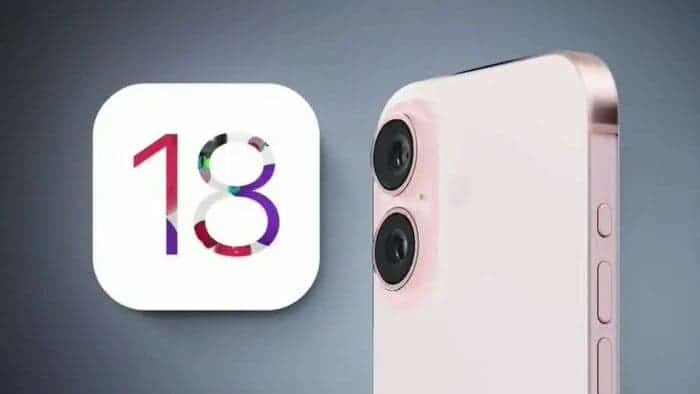Apple has confirmed that the upcoming iOS 18 system, set to launch this fall, will support the Rich Communication Services (RCS) protocol. This development marks a major shift in the way iPhones and Android devices communicate with each other. It replaces the ageing SMS and MMS protocols. The new standard will enhance the messaging experience across platforms, offering features like higher-resolution photos and videos, audio messages, and real-time typing indicators.

The Impact on iMessage
While iMessage will continue to be the default method for iPhone-to-iPhone communication, RCS will become the default protocol for communication between Android and iPhone devices. This means that when an iPhone user sends a message to an Android user, it will no longer default to SMS, which can result in lower-quality transmissions and truncated messages. Instead, RCS will provide a seamless and more advanced messaging experience.
The Benefits of RCS & 5G Messaging
RCS
RCS is designed to upgrade the traditional SMS and MMS protocols, offering a range of features that enhance the messaging experience. These include:
- Higher-Resolution Photos and Videos: RCS allows sending and receiving higher-quality multimedia content. This eliminates the need for MMS and its limitations.
- Audio Messages: Users can now send audio messages, which can be particularly useful for quick voice updates or for those who prefer voice communication over text.
- Real-Time Typing Indicators: RCS provides real-time typing indicators, allowing users to see when the recipient is typing, which can enhance the overall conversation flow.
- Read Receipts: Users can now track when their messages have been read, providing a more interactive and engaging experience.
- Improved Group Chats: RCS enables better performance in group chats, allowing for more efficient and seamless communication among multiple users.
5G messaging
One of the key benefits of 5G messaging is the ability to achieve a seamless, one-stop business experience, where users can search for products, interact with businesses, share content, and even make payments directly within the messaging window. This level of integration and interactivity is a game-changer for businesses looking to enhance their customer communication and engagement.
However, the colour of chat bubbles has become a source of anxiety for some users in the United States, where iMessage is a popular messaging platform. On Apple devices, blue chat bubbles indicate that both parties are using Apple devices and can take advantage of the rich features offered by iMessage. Green chat bubbles, on the other hand, signify that the other party is using a non-Apple device, most likely an Android phone. This means that users cannot utilize the full range of iMessage features when communicating with someone using an Android device.

While the colour of chat bubbles may not seem like a significant issue, it can be a source of social anxiety for some individuals. The inability to share high-quality media or participate in group chats with non-Apple users can be frustrating and may even lead to a sense of exclusion. However, it’s important to remember that the colour of the chat bubble does not define the value of the person on the other end of the conversation.
The Timeline for iOS 18 and RCS Support
At the 2024 WWDC Global Developers Conference today, Apple revealed that the iOS 18 system will support the RCS communication protocol. The company also confirms that the new standard will replace SMS and become the default protocol for communication between Android and iPhone devices. With the first iOS 18 beta already available, we will get more first-hand details of this feature in a few days.
History of RCS
Rich Communication Services (RCS) is a communication protocol that aims to replace SMS with a more feature-rich messaging system. The Rich Communication Suite industry initiative was formed in 2007, and 2008, the GSMA officially became the project home of RCS and established an RCS steering committee. RCS has undergone several important updates over the years, including the addition of voice support, file support, and geographic information support.
The first RCS specification, Release 1 Version 1.0, was published in December 2008. This version introduced the concept of enhancing voice and chat with content sharing, driven by an RCS-enhanced address book (EAB). Subsequent releases, including Release 2 Version 1.0 (August 2009), Release 3 Version 1.0 (February 2010), Release 4 Version 1.0 (February 2011), and Release 5 Version 1.0 (April 2012), added features such as broadband access, support for LTE, and IP video and voice calls
In 2016, the GSMA introduced the “RCS Universal Profile”, an industry-agreed set of features and technical enablers, to simplify and accelerate the development and deployment of RCS. RCS provides a message interaction interface and can work for both person-to-person (P2P) messaging and application-to-person (A2P) messaging between enterprises and individual users. RCS has the potential to lower the popularization cost of apps, reduce complexity for users, and make it easier to establish social networks.
Google remains the primary development and distribution engine for RCS as the default messaging client on Android smartphones. If Google were to pull back from RCS, it could impact the adoption and development of 5G messaging. However, with the deepening of 5G construction, RCS will likely become more common and may become a strong competitor to OTT services.
Conclusion
Apple’s decision to support RCS marks a significant step forward in the development of cross-platform messaging. The new standard will enhance the messaging experience for iPhone and Android users alike, offering advanced features and a more seamless communication experience. Google has been a major player in the popularization of RCS messaging. However, with the Apple now supporting this messaging system, we will likely see some changes and perhaps, updates in the future.





